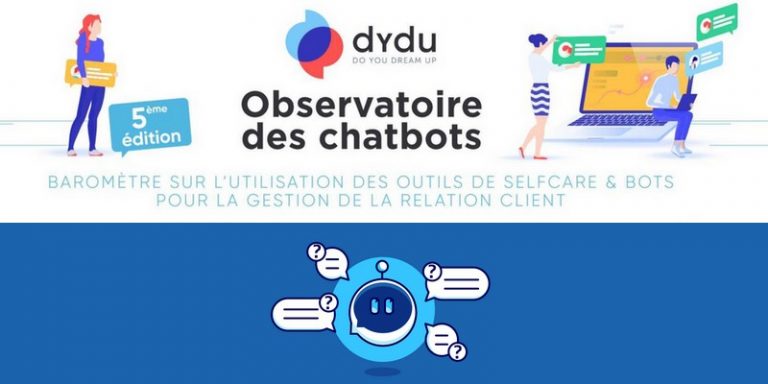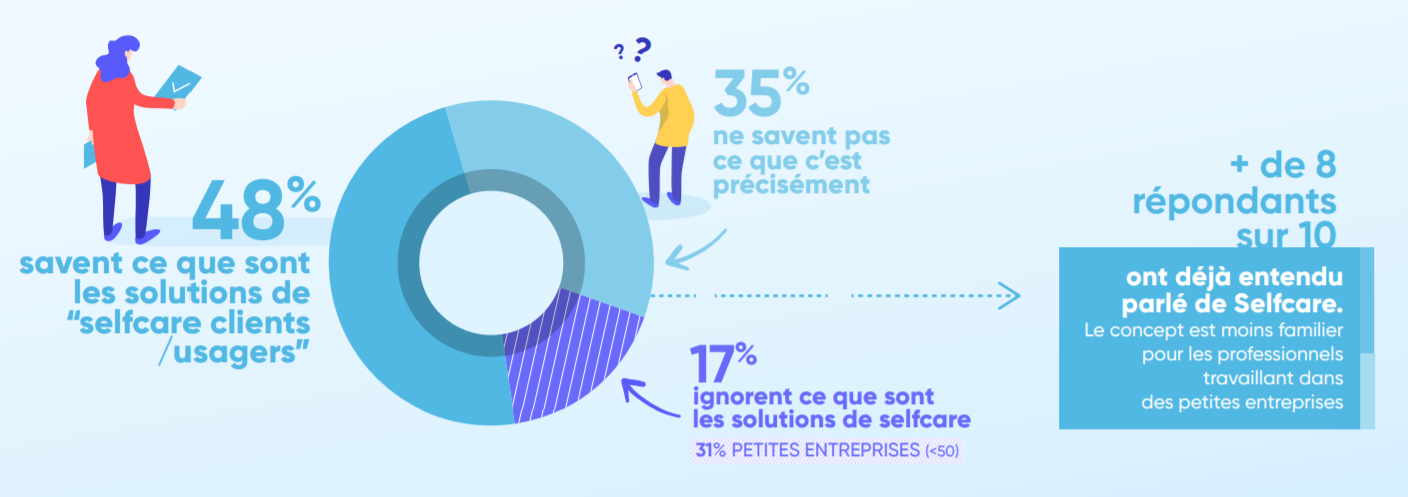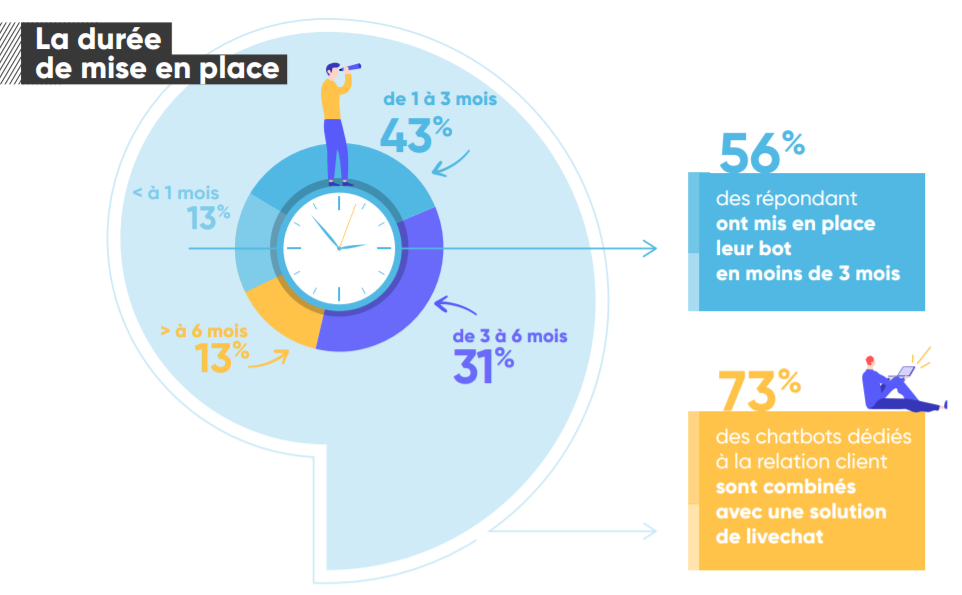
Dydu, a company specialized in conversational robots, has just published the results of the fifth edition of its annual survey on chatbots, callbots and voicebots. The aim of this survey is to provide some benchmarks around digital solutions related to conversational robots. Budget, use cases, customer relations, efficiency, quality, after-sales service, information retrieval and contract management are the topics covered by this Observatory.
A survey on conversational robots
The survey proposed by Dydu, entitled The Chatbot Observatory, aims to give the various professions concerned by the development of artificial intelligence systems and in particular conversational robots, points of reference on the use of these tools in their professional sphere and on the prospects that are emerging around the chatbots, callbots and voicebots sector.
This 5th edition focuses on the perception and use of self-care tools, and more particularly conversational robots. It was conducted among marketing and customer relations professionals. 309 professionals involved in marketing and relationship decisions participated in this online study from March 4 to 12, 2021.

Self-care tools: investments on the rise
Self-care refers to the use of digital solutions that automate all or part of a customer’s relationship with a brand: from finding information to after-sales service, including contract and account management or the use of a service or product. As the diagram below shows, 83% of those questioned have already heard of self-care, and almost half of them know what it is precisely.

Of those who use self-care tools, half of them believe that the tools they use handle 15 to 50% of customer requests. 5% of them have even gone so far as to fully automate their customer relations. 1 in 3 respondents indicated that their budget for self-care tools had increased. In large companies, this trend concerns 2/3 of respondents.
The self-care tools used are Frequently Asked Questions (FAQs) for half of the companies questioned, community forums where users can report their problems and chatbots.

Dydu states that selfcare tools and more specifically chatbots are “a useful and sustainable investment, when you consider that chatbot users give this tool a satisfaction rating of 7.5/10, and that 94% believe it meets their expectations, and even more so in times of crisis.”
Chatbots more frequently used to increase customer service quality and efficiency
52% of respondents have already implemented a bot or have plans to do so compared to 42% in 2017. With the implementation of a conversational bot, the benefits are manifold: answers provided to the customer 24/7 (55%), increased sales (50%), improved user experience (39%), reduced costs (37%), but also, an easier day-to-day for agents (18%). Among the obstacles mentioned: costs (45%), commissioning and maintenance (16%) and internal skills (9%).
The most frequent use cases concern requests for information (65%), ordering a product or making a reservation, requesting a service (49%), after-sales service (45%), consulting and managing customer accounts (42%) and changing or cancelling a service (19%). To implement these bots, more than half of the companies have set up their tool in less than 3 months.

Finally, 90% of the professionals surveyed believe that bots are becoming an increasingly important part of the self-care solutions deployed, and 82% say that bots dedicated to advisors or agents will help them to be more efficient in their responses to users. 73% even say that they will create new jobs.
Translated from La société Dydu publie son enquête autour des robots conversationnels et des outils de selfcare









